5 best family NAS devices for home data security, priced from 4.5 million
Are you looking for a secure storage solution for your personal data at home while not wanting to not use the cloud?This article will introduce you to the best family NAS solutions that you can find on the market today.
Networked storage systems are not just for large businesses.In most modern families today, you can easily find a lot of desktops, laptops, and mobile devices, in other words, people are getting more and more exposed to information technology, which entails the need to store virtual data.Therefore, central repository, cloud storage for important personal data is really necessary in this day and age.This ensures that you can access your data warehouse from anywhere, even when you're on the road, thanks to easy-to-use remote access services.However, there is one problem that is security.We all know the Internet is the ideal environment for hackers, so is it only safe to store data online?Now NAS devices really work.
Moreover, modern NAS devices can also run all useful network applications, from multimedia servers to databases, wikis and security camera management systems.No matter what your needs are, NAS can help you, so read on to find out if NAS devices are right for you.
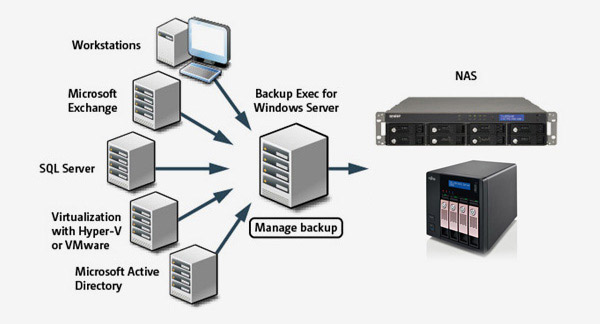
Choose to buy NAS
- How to choose a suitable NAS system
- What is my need? What type of NAS should I buy?
- What connection types should I choose?
- How to get the best performance?
- What type of drive should I use?
- What information do I have to know about auxiliary applications?
- Can I access my data remotely?
- Is the data on my NAS absolutely secure?
- Family NAS devices cost from 4.5 million to buy the most
- Asustor AS6404T: The best automation NAS device
- Synology DS216j: Basic NAS has the best price
- Drobo 5N2: The most user-friendly NAS device
- TS-251A Qnap: The best NAS with two hard drive bays
- WD My Cloud Pro PR4100: The best mid-range NAS device
How to choose a suitable NAS system
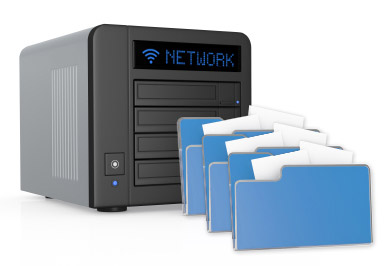
What is my need? What type of NAS should I buy?
A NAS drive system usually comes with a number of hard drive bays.For home NAS models, this number usually varies from one to four trays.The minimum and reasonable amount of hard drive tray for a family NAS system is two, which means you will use two suitable hard drives in a mirrored RAID1 configuration.That way, if a drive fails, you will still have a backup copy of all your data on the remaining drive.However, you should not use JBOD configuration or RAID0, these features will bring more capacity but are not fault tolerant, ie if one drive fails, all your data will also be lost.
If your wallet is a bit more flamboyant, you should consider four-bay NAS systems, which will give you much more flexibility to use.With four discs, you can set up a RAID5 array, thereby providing you with a better balance of data processing and security capabilities.For four-compartment NAS systems, part of each disk will be used to back up parity data from the remaining three drives (making it possible to rebuild the RAID array in case of a problem).For example, with four 1TB drives, you can store up to 3TB of data and if any single drive fails, you just need to replace and the system will be able to continue working.
Often, four-compartment NAS devices also tend to be equipped with additional features, such as more ports, LCD screens to display more convenient information.However, while using them will also be noisier, consume more energy and of course will be a bit more expensive.
What connection types should I choose?
Most NAS devices provide users with one or more USB 3 ports, so you can connect NAS to another external hard drive and share files over your network.In addition, there will also be a connection port on the front for one-touch copy service: You simply plug in the USB hard drive and press the copy button, then the contents of the USB drive will be copied to the NAS.If your data is currently scattered across a variety of removable drives, this is an easy way for you to consolidate all your scattered data into a specific location.
You can also find HDMI ports and audio sockets to connect monitors and speakers directly to your NAS.These features will allow you to use integrated applications to turn your NAS system into a video player or audio player automatically.In addition, you can even plug in a keyboard, mouse and run desktop applications right on the NAS device, but don't expect much of a powerful performance, despite hardware on the NAS. Also equipped with relatively stable compared to standard desktop computers.
How to get the best performance?
Your NAS system must be connected to a Gigabit Ethernet port on the router.If your router only provides Ethernet speeds of about 100Mbps, of course the speed of NAS will be severely limited, so upgrading your router and Internet bandwidth will be the first step in helping NAS systems. achieve the most optimal performance.
Even with a Gigabit uplink connection, don't expect to get extremely fast file backup speeds.In theory, the backup rate of a NAS system can be up to 100MB / sec for a single large file, but for a small file folder, the system's backup speed will be significantly reduced. .
What type of drive should I use?
All NAS drives in our list below do not have an attached drive.Manufacturers often recommend using dedicated NAS dedicated drives such as the WD Red series, designed for use in many high temperature environments.For a home NAS system, the requirement for drives will not be too demanding.You can buy cheap drives on the market or reuse drives from computers that have stopped working to save costs, just make sure that these drives are still in good use. OK!
What information do I have to know about auxiliary applications?
Most modern NAS systems will come with all the basic services you need to work with Windows, macOS and Linux clients.Many NAS devices will also include Apple's Time Machine backup service, and for enterprise scale, the NAS also supports both Active Directory and iSCSI.
More importantly, the NAS will also be integrated with some extensions.These utilities will make your NAS device more useful in many situations.Most NASs will come with an integrated "application store", providing dozens or even hundreds of applications that you can install with just one click.In particular, this app store contains media server applications, allowing your NAS to be able to handle audio and video, as well as connect to smart devices in the home.You'll also find business and development tools, surveillance applications that work with IP cameras and even content management systems like WordPress.
A little note: If you turn on the download of entire applications and services, there is a possibility of a hardware conflict.If this is a concern for you, choose for yourself a model with a powerful Intel processor, which has a large amount of RAM and can add additional memory if needed.
Can I access my data remotely?
With the correct settings, you can access your NAS device from anywhere in the world.This is a great alternative to cloud services like Dropbox and Google Drive . You won't have a monthly fee and still have a lot of storage and especially very safe.Each provider offers separate services, which are usually web-based, making it easy to access your files securely from the web browser.
Many providers also provide users with the ability to integrate with a third-party cloud service to a certain extent, helping files in a certain folder on your NAS device to be shared. Automatic synchronization with your cloud storage account, and vice versa.This is very convenient if, for example, you want to use a printer or scanner that integrates with a cloud service like Dropbox, because it will save you time because you don't have to move. transfer files back and forth between services.
Is the data on my NAS absolutely secure?
No service is absolutely safe.If cloud storage services are at risk of being attacked by hackers or encountering problems from the service server, your NAS system may be corrupted by an error from the electrical system, or intruders steal . To limit the risks, many NAS systems often come with a built-in support for offsite backup systems like Amazon S3 or ElephantDrive, despite these services. not free.Also, if you have access to NAS devices, most of them will allow you to automatically copy your data over the internet.
Another information that you need to remember is that modern NAS systems can be thought of as a small computer, meaning that it will also be vulnerable to hackers and malware like any other. any other type of computer.Therefore, remember to install the system updates immediately after being sent the notice.Most people often install NAS devices to automatically update the software at night to minimize disruption, as well as to avoid forgetting to update applications and services for the system (you also You can apply this tip to your computer systems).In fact, it has been noted that PC-based ransomware cases specifically target NAS devices, so it's important to pay attention to regular system updates.
Family NAS devices cost from 4.5 million to buy the most
Asustor AS6404T: The best automation NAS device
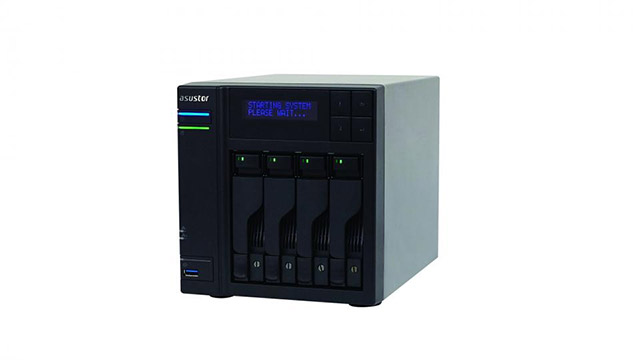
Specifications:
- CPU: Intel Celeron J3455 (1.5GHz, 2.3GHz burst, quad-core).RAM: 8GB.
- Number of drive bays: 4.
- RAID mode: Single, JBOD, RAID 0, RAID 1, RAID 5, RAID 6, RAID 10.
- Gigabit Ethernet connection: 2.
- Data connection ports (rear): 2 x USB 3, USB Type-C, front: USB 3. Other connection ports: HDMI, S / PDIF;
- Size (width x thickness x height): 170 x 230 x 186mm.
- 3 year warranty.
Reference price: 17 million (excluding drives).
It can be affirmed, AS6404T is a high-end NAS system, with LCD screen on the front and a powerful Intel Celeron J3455 quad-core processor inside.AS6404T is also relatively easy to use thanks to Asustor's smooth ADM web interface, furthermore it will support all important network protocols and services.The testing process showed that AS6404T had no problem accessing music library via iTunes, as well as when streaming Full HD video via Plex.In addition, this device is also integrated quite a lot of alternative video playback services, including DLNA, Kodi and Apple AirPlay.Remote access on the AS6404T is handled by Asustor's Cloud Connect service, while the Surveillance Center application will help you monitor up to four IP cameras, and these services are completely free.
Thanks to the HDMI connector and double USB connection on the back, you can even use this NAS device as a standalone audio and video storage center or run as a fully functioning Linux desktop. power.To be fair, 8GB of RAM on this device is not a big number when we run the above tasks, but it is sufficient for moderate computing tasks.
The biggest difficulty for AS6404T to reach consumers is only the selling price.Agree that the features and performance that this model brings are worthwhile, but for family-based daily NAS tasks, there are many other more economical options.However, there's nothing wrong with investing in a powerful NAS system right now.In short, with four drive bays and two Gigabit Ethernet ports, AS6406T will be able to meet your needs for a very long time.
Synology DS216j: Basic NAS has the best price
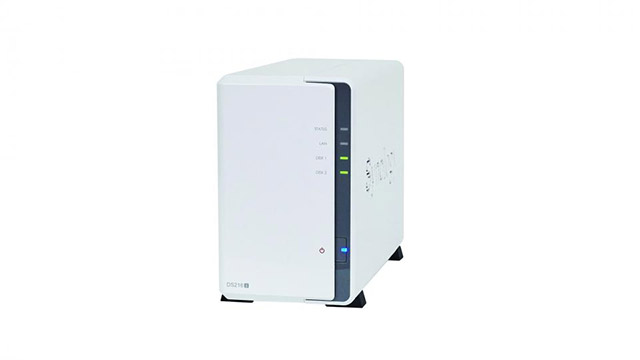
Specifications:
- CPU: Marvell 385 88F6820 (1GHz, dual core).RAM: 512MB.
- Number of drive bays: 2.
- RAID mode: JBOD, RAID 0, RAID 1, Synology Hybrid RAID.
- Gigabit Ethernet connection: 1.
- Data connection port (rear): 2 x USB 3.
- Data connector (front side): No.
- Other connection ports: No.
- Size (width x thickness x height): 100 x 226 x 165mm.
- Warranty: 2 years.
Reference price: 4.5 million (not including drive).
Synology DS216j is a very cheap two-compartment NAS device that can be said to be the cheapest in the market, and in return, this device will have a very unattractive design.But only, good and bad is depending on the beauty of each person, we will not discuss this part carefully.Back to the main point, the good news is that Synology DS216j will be running the full version of Synology's latest DSM 6.1 operating system, with all the same features as high-end corporate devices, including delivery. Rich web interface, windows and a variety of companion apps for Android and iOS.The NAS will also be integrated with all major cloud storage services, plus easy remote access and compatibility with iTunes and Time Machine.
The Marvell 32-bit dual-core 1GHz processor on Synology DS216j is strong enough to keep up with daily file copy operations, but you can't upgrade 512MB of built-in RAM, so if you run a lot of translation Service and application at the same time, slow, jerky, lag phenomenon may appear, quite regrettable!In addition, your video server option will be limited: Plex will work but you will need smart clients to be able to handle video decoding.However, Synology's Video Station application will be able to distribute 1080p H.265 video via DLNA (or via Synology's video application).
Obviously DS216j is not the most versatile device on the market.However, if your needs are not too complicated and your investment costs are limited, Synology DS216j will be a remarkable option with all the most basic features and more, at a price. great.
Drobo 5N2: The most user-friendly NAS device
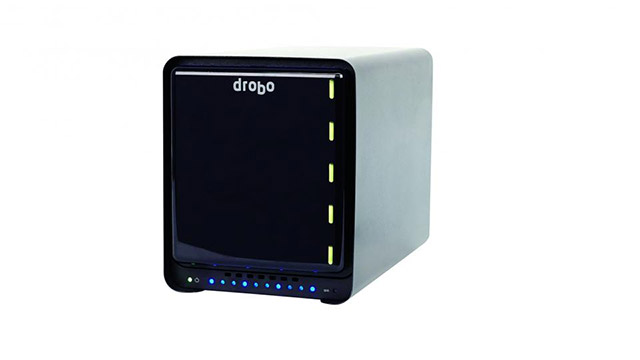
Specifications:
- CPU: Marvell XP (1.6GHz, quad-core).RAM: 2GB.
- Number of drive bays: 5.
- RAID mode: Automatically (redundant about 1/2 disk).
- Gigabit Ethernet connection: 2
- Data connection port (rear): No.
- Data connection port (front side): No.
- Other connection ports: No.
- Size (width x thickness x height): 150 x 262 x 185mm.
- Warranty: 2 years.
Reference price: 14.5 million (excluding drives).
Drobo 5N2 was created to make it easier for the world of storage devices attached to the Internet to reach common users.RAID will not be noticed much on this device.Drobo 5N2 will automatically configure your installed media applications to provide a best balance of capacity and security, helping to limit single errors.Drobo also avoids the usual web-based interface, it uses an interface beneficial to clients called Drobo Dashboard.This is not a bad idea, because the software will handle all the confusing activities of NAS discovery, as well as log and map a drive in Windows.A range of reliable applications and services will be supported in Drobo 5N2 including: iTunes, Time Machine and Plex, along with a number of development tools such as Node.js, Ruby and Subversion.However, if you want to practice technical settings, or become familiar with the interface of other devices and systems, a basic NAS device might be more suitable for you.As for a normal family size user, just want a free and no-cost archive, Drobo 5N2 is an ideal product.Another minus point is that the number of connection ports supported on Drobo 5N2 is pretty low.
TS-251A Qnap: The best NAS with two hard drive bays
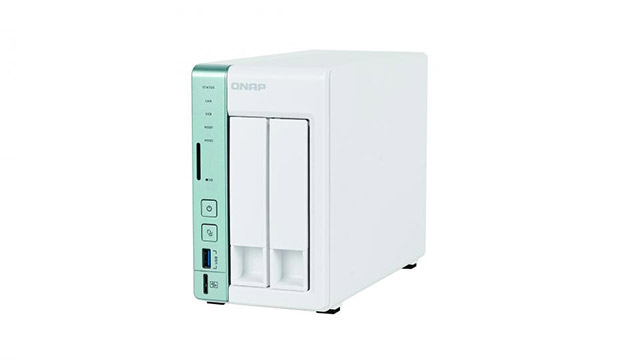
Specifications:
- Intel Celeron N3060 CPU (1.6GHz, burst speed of 2.48GHz, dual-core).RAM: 2GB.
- Number of drive bays: 2.
- RAID mode: Single, JBOD, RAID 0, RAID 1.
- Gigabit Ethernet connection: 2.
- Data connection port (rear): 2 x USB 3.
- Data connection port (front side): USB 3, micro-USB 3, SD card reader.
- Other connection ports: 2 x HDMI, 2 x audio jacks.
- Size (width x thickness x height): 102 x 219 x 169mm.
- Warranty: 2 years.
Reference price: 9 million (not including drive).
The manufacturer has crammed a lot of features into a compact two-compartment chassis of TS-251A.On the front of the device gives us a USB 3 port, along with micro-USB 3 port and SD card reader, and in the back there will be two HDMI sockets, which are compatible with a pair of 4K monitors Therefore, the TS-251A can act as a mini 'media' in its own right.The TS-251A even includes a remote control included in the box.
For those who are more interested in synchronization and backup services, they will be pleased to know that all network and service protocols you need, TS-251A have support, including Time Machine, AirPlay, iSCSI and Active Directory.A variety of cloud and backup services will also be supported.In addition, the built-in Surveillance Station license allows you to control two IP cameras at once.You can even use the free Linux Station application to turn the TS-251A into a full-featured desktop computer.
Of course not every user wants or needs all the features of the TS-251A, but if you are tempted by the Qnap manufacturer's ambitious broad approach to attached storage devices network, this product is a great choice.
WD My Cloud Pro PR4100: The best mid-range NAS device
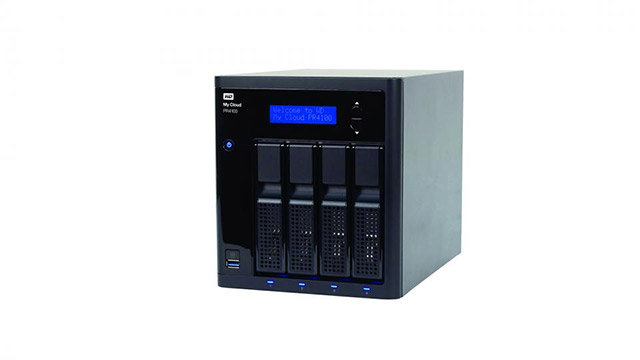
Specifications:
- CPU: Intel Pentium N3710 (1.6GHz, 2.56GHz, quad-core).RAM: 4GB.
- Number of drive bays: 4
- RAID mode: JBOD, RAID 0, RAID 1, RAID 5, RAID 10.
- Gigabit Ethernet connection: 2.
- Data connection port (rear): 2 x USB 3.
- Data connection port (front side): USB 3.
- Other connection ports: No.
- Size (width x thickness x height): 170 x 232 x 192mm.
- Warranty: 2 years.
Reference price: 14 million (not including drive).
My Cloud PR4100 is a product with a cool but slightly confusing design, with a two-line LCD status display and navigation buttons that allow you to switch between different information about the system.Meanwhile, the interface on My Cloud PR4100 is relatively clean and accessible.This interface follows the familiar window-based approach of a simple tab-oriented graphical interface.
A rich utility repository will be supported on My Cloud PR4100, including media servers, a monitoring service and options for productivity and scalability.If you have higher configuration requirements, you can upgrade RAM to 16GB.However, there is no way to play media locally on this NAS, and it also does not support desktop or virtualized applications, quite confusing on a well-configured and affordable device. Powerful expansion like PR4100.
For a four-compartment NAS device and a good configuration like My Cloud PR4100, VND 14 million is an extremely competitive price, suitable for family size needs.
Now, you have gained some information about how to buy as well as the best family NAS systems according to each criterion.Wishing you a suitable product!
See more:
- Software to check the read and write speed of SSD hard drives, HDD best
- Top 10 best gaming screens under 5 million
- 8 best optical cable modems and cables 2018
- Synology NAS DS918 +: Powerful configuration, great scalability